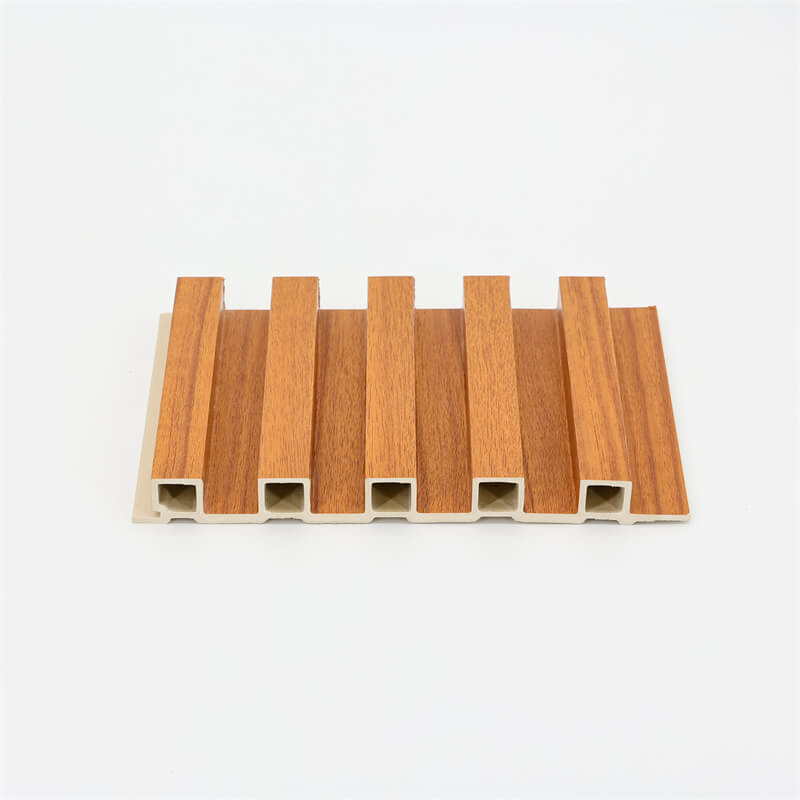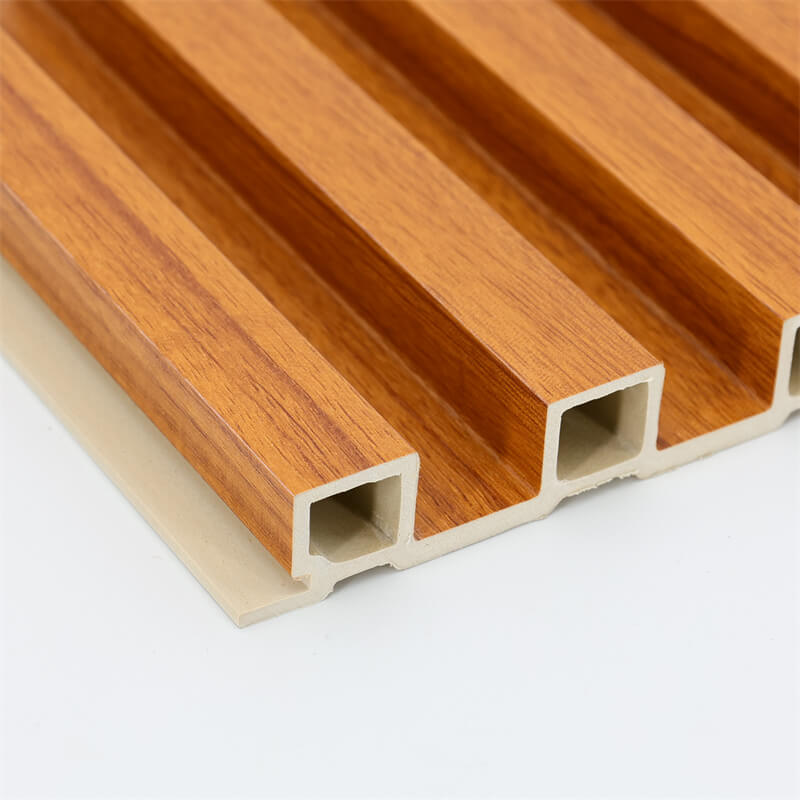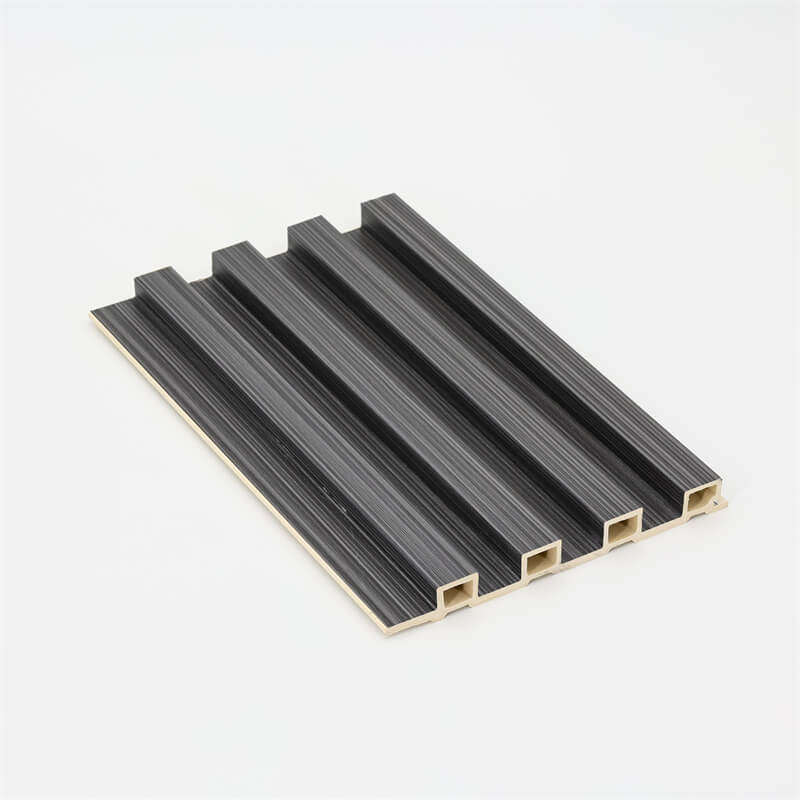
In recent years, the demand for innovative interior design solutions in commercial spaces has grown significantly.
Businesses are no longer content with mundane and traditional wall coverings; instead, they seek versatile, aesthetically appealing,
and durable options that can transform their spaces while reflecting their brand image.
Wood Plastic Composite (WPC) wall panels have emerged as a revolutionary alternative to conventional wall materials, providing an ideal balance between functionality and style.
This essay explores the attributes of WPC wall panels and their application in commercial spaces, highlighting how they fulfill the needs of modern businesses.
Understanding WPC Wall Panels
Wood Plastic Composite (WPC) is a composite material made from a combination of wood fibers and thermoplastics, typically polyethylene, polypropylene, or polyvinyl chloride.
The resulting WPC boards offer a compelling mix of the natural appearance of wood and the durability of plastics.
WPC wall panels are manufactured through a specialized extrusion process, producing panels that can be customized in various sizes, colors, and textures.
The advantages of WPC wall panels over conventional wall materials are manifold.
Firstly, WPC is highly resistant to moisture and decay, making it an ideal choice for areas prone to humidity or dampness.
Secondly, its sturdy construction ensures enhanced strength, making it less susceptible to damage and wear over time.
Additionally, WPC wall panels are eco-friendly as they utilize recycled wood fibers and plastic waste, reducing their environmental impact and promoting sustainability.

Aesthetic Appeal and Design Versatility
One of the most significant advantages of WPC wall panels lies in their aesthetic appeal and design versatility.
Businesses can choose from a broad spectrum of finishes, patterns, and colors to complement their interior design themes seamlessly.
Whether seeking a rustic, natural wood appearance or a sleek and modern feel, WPC wall panels can cater to diverse design preferences.
Moreover, WPC wall panels can be molded into various shapes and sizes, enabling businesses to experiment with different layouts and patterns.
The ability to incorporate intricate designs, embossed textures, and 3D effects provides commercial spaces with a unique and sophisticated ambiance that sets them apart from competitors.
As a result, businesses can create an immersive environment that resonates with their brand identity and leaves a lasting impression on clients and visitors.

Functionality in Commercial Spaces
Beyond their visual appeal, WPC wall panels offer a range of functional benefits that cater specifically to the needs of commercial spaces.
One essential feature is their acoustic properties. The dense composition of WPC panels aids in sound insulation, reducing noise pollution within the premises.
This is particularly valuable in offices, restaurants, hotels, and other businesses where maintaining a quiet and comfortable environment is crucial.
Furthermore, WPC wall panels are low-maintenance, requiring minimal upkeep compared to traditional wall materials such as paint or wallpaper.
The impermeable surface of WPC makes it easy to clean, and it is resistant to stains and scratches, ensuring that commercial spaces maintain a polished and pristine appearance with minimal effort.
Additionally, the moisture-resistant nature of WPC panels makes them ideal for applications in commercial kitchens, bathrooms, and other areas where humidity levels are high.
Unlike conventional wood panels, WPC does not swell or rot when exposed to moisture, ensuring the longevity and structural integrity of the wall surfaces.
Application in Various Commercial Settings
WPC wall panels find extensive application in a wide range of commercial settings, owing to their adaptability and diverse properties.
Let’s explore some of the prominent use cases:
1. Retail Spaces: In retail environments, WPC wall panels can be utilized to create eye-catching displays and enhance the overall shopping experience.
Retailers can leverage the design versatility of WPC to craft visually appealing storefronts and interior walls that showcase their products effectively.
2. Office Spaces: WPC wall panels in offices contribute to a professional and inviting atmosphere.
The acoustic properties of WPC help reduce noise distractions, fostering a conducive work environment.
Businesses can also incorporate branding elements into the wall panel designs, reinforcing their corporate identity.
3. Hospitality Industry: Hotels, restaurants, and cafes can benefit from the aesthetic appeal and durability of WPC wall panels.
These panels can be installed in lobbies, dining areas, and guest rooms, creating an inviting and luxurious ambiance for patrons.
4. Educational Institutions: WPC wall panels can find application in schools and universities, transforming plain walls into stimulating learning environments.
The panels can be used to display educational content, artwork, or motivational messages.
Wood Plastic Composite (WPC) wall panels have revolutionized the way commercial spaces approach interior design.
With their combination of functionality, style, and design versatility, WPC wall panels offer a myriad of benefits to businesses.
Their resistance to moisture and decay, low-maintenance requirements, and acoustic properties make them highly suitable for diverse commercial settings.
Whether it’s enhancing the aesthetics of retail spaces, fostering a productive atmosphere in offices, or creating a luxurious ambiance in hospitality establishments,
WPC wall panels prove to be a compelling choice for modern commercial interiors.
As businesses continue to prioritize unique and sustainable design solutions, the popularity of WPC wall panels is poised to grow even further.
